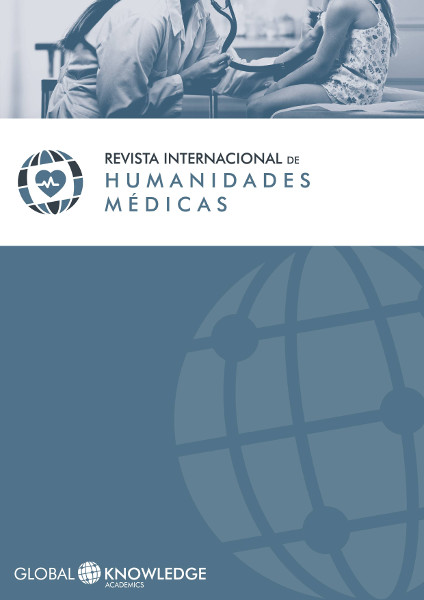Handball practice adapted to a mixed group in wheelchairs: from the standpoint of psychological well-being of Ryff
DOI:
https://doi.org/10.37467/gka-revmedica.v6.833Keywords:
Psychological well-being, Disability, Model of Diversity, SportsAbstract
This research was conducted in order to analyze the contribution of handball practice adapted to the level of post-training process psychological well-being (BP). BP was analyzed from the six categories raised by Ryff (1989) self-acceptance, positive relations with others, Domino environment, Autonomy, Purpose in life and Personal growth, these categories related to the sport experience since the first time the partakers acquired a wheelchair. The study included 5 adults between 40-54 years, only one case of 18 years. The methodology was qualitative-descriptive and the recollecting information technique used was participant observation and depth interviews. The results show that personal growth is the dimension that is transformed by the sport due to learning and new habits that are incorporated, also associated with the development of strategies for health management.
Global Statistics ℹ️
|
127
Views
|
33
Downloads
|
|
160
Total
|
|
References
Contreras, F; & Esguerra, G. (2006) Psicología positiva: una nueva perspectiva en psicología. Red de Revistas Científicas de América Latina, el Caribe, España y Portugal, 2(2), 311-319, Recuperado el día 16 de diciembre del 2014 de: http://www.redalyc.org/articulo.oa?id=67920210
Dane. (2012) CENSO. Recuperado el día 18 de enero del 2015 de: http://www.dane.gov.co/index.php/esp/poblacion-y-registros-vitales/discapacidad/119-demograficas/discapacidad/2848-discapacidad-por-departamentos
Ferrante, C; & Ferreira, M. (2011) Cuerpo y habitus: el marco estructural de la experiencia de la discapacidad. Revista sociológica de pensamiento crítico, 5(2), 85-101. Recuperado en febrero de 2014 de: http://webcache.googleusercontent.com/search?q=cache:http://
scholarlyexchange.org/ojs/index.php/InterSoc/article/download/8888/6229
Ferrante, C; & Ferreira, M. (2012). Luchas simbólicas en la definición del cuerpo discapacitado legítimo en el origen e institucionalización del campo del deporte adaptado de la Ciudad de Buenos Aires, Argentina. Revista Latinoamericana de Estudios sobre Cuerpos, Emociones y Sociedad, 9, 38-51. Recuperado de:
Ferrante, C; & Ferreira, M. (2013). Cuerpo, deporte y discapacidad motriz en la Ciudad de Buenos Aires. Tensiones entre la reproducción y el cuestionamiento a la dominación, Revista Española de Discapacidad, 1, 159-178.
Hagger, M; & Chatzisarantis, N. (2008) Self-determination Theory and the psychology of exercise. International Review of Sport and Exercise Psychology. 1(1), 79-103. DOI: 10.1080/17509840701827437
Leeuwen, C; Post, M; Woude, L; Groot, S; Smit, C; Kuppevelt , D; & Lindeman, E. (2012) Changes in life satisfaction in persons with spinal cord injury during and after inpatient rehabilitation: adaptation or measurement bias. Qual Life Res, 21(1), 499–1508. Recuperado el día 26 de junio del 2015 de: http://link.springer.com/article/10.1007%2Fs11136-011-0073-7
Medina, J. Chamarro, & E. Parrado (2013) Efecto del deporte en el bienestar psicológico de las personas con gran discapacidad física de origen neurológico. Revista Rehabilitación, 47(1), 1-10. Recuperado el 20 de septiembre de 2013 de: http://dx.doi.org/10.1016/j.rh.2012.10.006
Molero, F; Ferrero, S; García, C; & Fernández, I. (2013) La relación entre la discriminación percibida y el balance afectivo en personas con discapacidad física: el papel mediador del dominio del entorno. Acta colombiana de psicología. 16(1). 35-42. Recuperado de: http://portalweb.ucatolica.edu.co/easyWeb2/files/23_11621_v16-n1-art3.%2016%20No1.pdf
Núñez, L., León, J., González, V., & Martín-Albo, J. (2011). Propuesta de un modelo explicativo del bienestar psicológico en el contexto deportivo. (Spanish). Revista De Psicología Del Deporte, 20(1), 223-242.
Solano, A. (2009) El bienestar psicológico: cuatro décadas de progreso. Revista Interuniversitaria de Formación Del Profesorado, 66(23,3), 43-72. Recuperado el día 1 de enero del 2015 de: http://www.aufop.com/aufop/uploaded_files/articulos/1258587233.pdf
Organización Mundial de la Salud (2011) Informe Mundial sobre la discapacidad. Recuperado de: http://www.who.int/disabilities/world_report/2011/es/
Palacios, A; & Romañach, J. (2008) El modelo de la diversidad: una nueva visión de la bioética desde la perspectiva de las personas con diversidad funcional (discapacidad). Revista Sociológica de Pensamiento Crítico. 2(2), 37-47. Recuperado el 06 agosto del 2014 de: http://www.intersticios.es
Rivas, C., Romero, A., Pérez-Llantada, M. d. C., López de la Llave, A., Pourtau, M., Molina, I., González, J. & Garcia-Mas, A. (2012). Bienestar psicológico, salud general, autonomía percibida y lesiones en futbolistas. Revista de Psicología del Deporte, 21(2) 365-371. Recuperado de http://www.redalyc.org/articulo.oa?id=235126897017
Ryff, C. (1989) Happiness Is Everything, or Is It? Explorations on the Meaning of Psychological Well-Being. Journal of Personality and Social Psychology, 57(6), 1069-1081.
Sandoval, C. (1996). Investigación cualitativa. Bogotá Colombia. ISBN: 958-9329-18-7. Recuperado de http://www.ugr.es/~erivera/PaginaDocencia/Posgrado/Documentos/DisenoInvestigacion.pdf
Waterman, A. (1993) Two Conceptions of Happiness: Contrasts of Personal Expressiveness (Eudaimonia) and Hedonic Enjoyment. Journal of Personality and Social Psychology, 64(4), 678-691. DOI: 10.1037/0022-3514.64.4.678
Downloads
Published
How to Cite
Issue
Section
License
Those authors who publish in this journal accept the following terms:
- Authors will keep the moral right of the work and they will transfer the commercial rights.
- After 1 year from publication, the work shall thereafter be open access online on our website, but will retain copyright.
- In the event that the authors wish to assign an Creative Commons (CC) license, they may request it by writing to administracion@edulab.es









